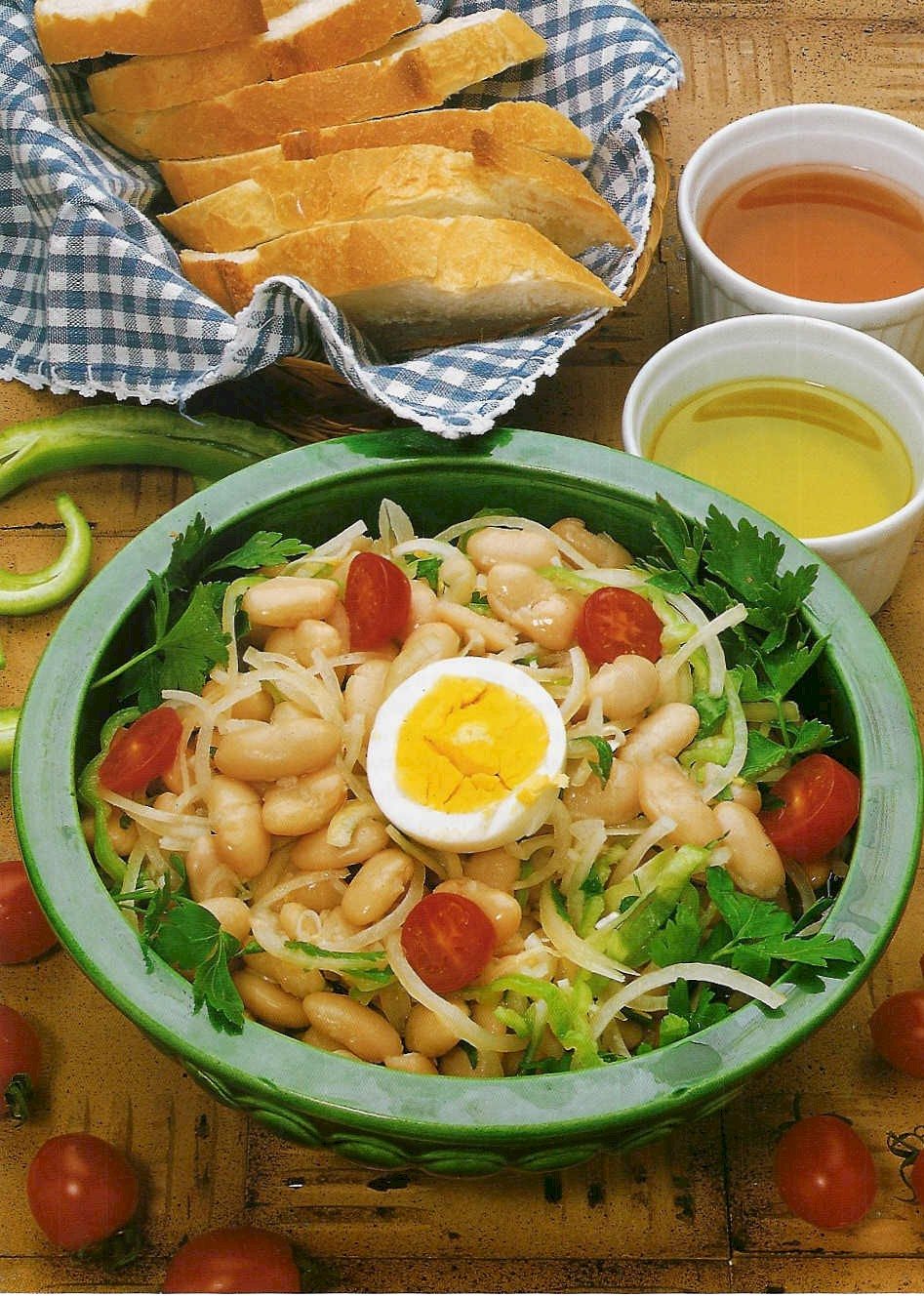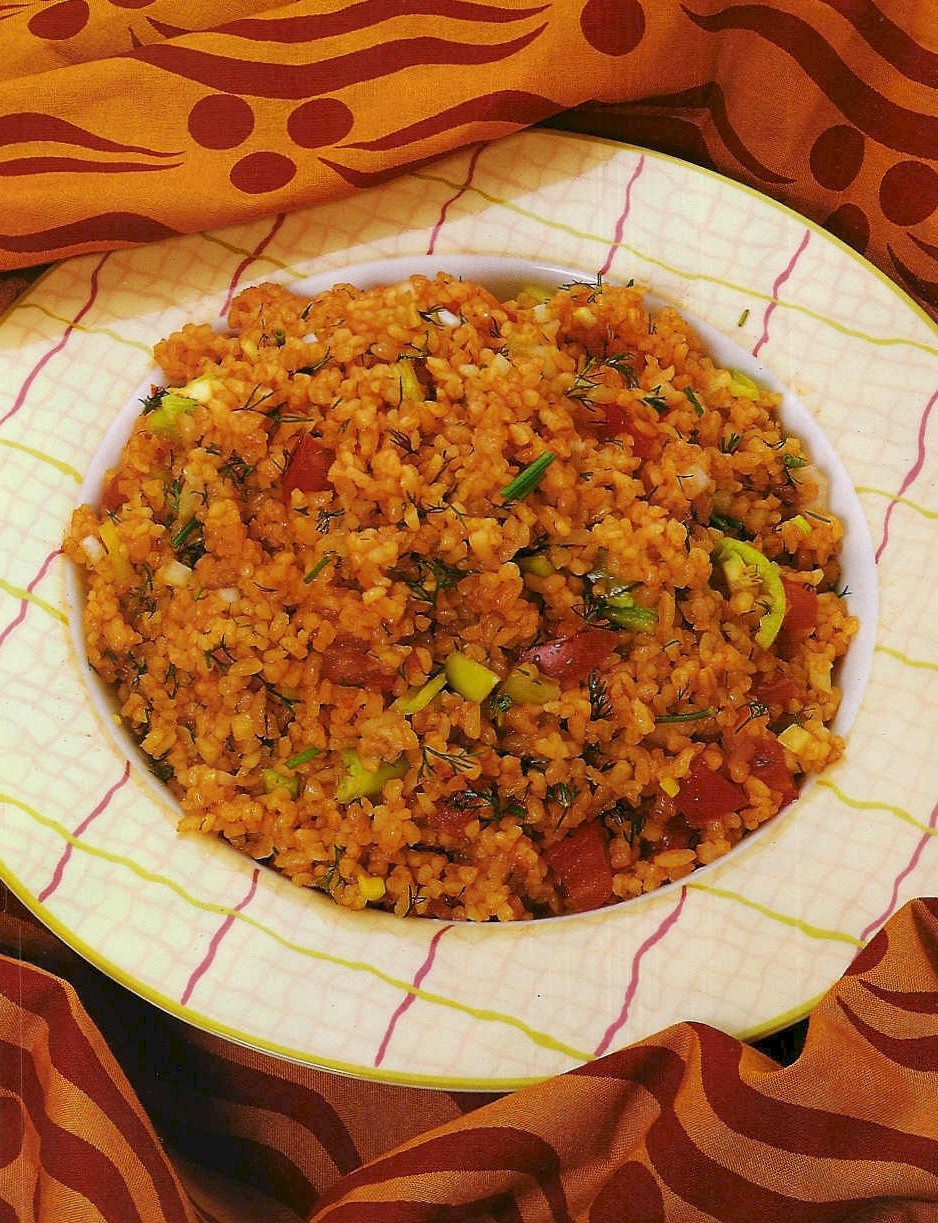SALADS AND MEZES
 Although
there is a conflict in Turkish Cuisine as to which dishes are mezes and which
are salads, there is one fact admitted by everybody: raki is served with mezes
and salads. All fermented alcoholic drinks, including are is prohibited by
Islam. Therefore, Turks, after settling in Anatolia, have never made use of
delicious grapes grown, by producing wine. However, a combination of grape and
anise was distilled to produce raki whose production was then widespread and
improved as an alternative to wine. During the reign of Ottomans, raki was
drunk just by men, who were accompanied by lute playing and singing ladies.
Raki, served with two separate glasses, one for the spirit, one for water, used
to be drunk with delicious and charming mezes. Raki tables were addresses where
men enjoyed good music and good talk. If men preferred to drink with friends,
they went to meyhanes, restaurants serving only raki, meze and salad, sitting
on short stalls around a short table chatting and improving their friendship,
while tasting numerous and mouth-watering mezes. In Turkey, politics and arts
are discussed on raki tables similar to cafes in France. After the
establishment of the republic in Turkey, the system of new government was
decided at raki tables of Atatiirk. Although
there is a conflict in Turkish Cuisine as to which dishes are mezes and which
are salads, there is one fact admitted by everybody: raki is served with mezes
and salads. All fermented alcoholic drinks, including are is prohibited by
Islam. Therefore, Turks, after settling in Anatolia, have never made use of
delicious grapes grown, by producing wine. However, a combination of grape and
anise was distilled to produce raki whose production was then widespread and
improved as an alternative to wine. During the reign of Ottomans, raki was
drunk just by men, who were accompanied by lute playing and singing ladies.
Raki, served with two separate glasses, one for the spirit, one for water, used
to be drunk with delicious and charming mezes. Raki tables were addresses where
men enjoyed good music and good talk. If men preferred to drink with friends,
they went to meyhanes, restaurants serving only raki, meze and salad, sitting
on short stalls around a short table chatting and improving their friendship,
while tasting numerous and mouth-watering mezes. In Turkey, politics and arts
are discussed on raki tables similar to cafes in France. After the
establishment of the republic in Turkey, the system of new government was
decided at raki tables of Atatiirk.
 Nowadays
meyhanes are also frequented by women and the tradition of serving numerous
varieties of mezes and salads in small cups, presented on a large tray still
continues. The purpose of eating meze is not to make the stomach full, but to
ease the drinking of raki and to tickle the palate. Nowadays
meyhanes are also frequented by women and the tradition of serving numerous
varieties of mezes and salads in small cups, presented on a large tray still
continues. The purpose of eating meze is not to make the stomach full, but to
ease the drinking of raki and to tickle the palate.
In serving meze, variety is more
valued than harmony; hot, sweet, salty and sour varieties are in unity. Small
boreks are served hot, whereas salads and mezes in olive oil are served cold.
The only common point of mezes is that all varieties are delicious and
attractive.
Salads and mezes are eaten nearly in
all the meals also without raki as the main course or as the accompanier of
main dishes. We can say that the only sauce for salads is made of oliveoil,
lemon juice or vinegar and salt which is used lavishly on any kind of vegetable
according to the season and the tastes and preferences of the lady preparing
it. The only exception to this light sauce is the yoghurt sauce consisting of
yoghurt, oliveoil, garlic and salt usually poured over charcoaled or fried
vegetables. "I wish I were a fish in a bottle of raki." Line of the
famous poet Orhan Veli simply' summarises the passion of Turkish people for
raki and the raki table and mezes and salads.
|

